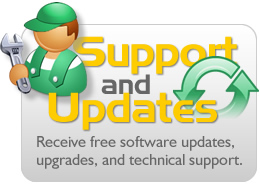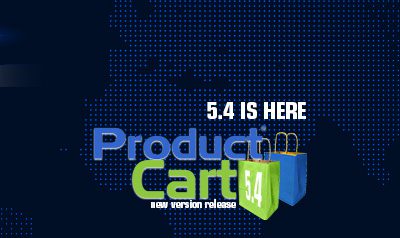Over the past few years, several customers have asked us to explain the specific terms and purpose of the Support & Updates Plan, so we decided to turn it in to a blog post.
Before we talk about that however, we think it makes sense to briefly describe the different types of shopping cart models, and the support implications that go along with them.
Technical support and different licensing models
As most customers already know, there are basically 3 options for merchants needing an on-line store:
- Open Source
- Software as a Service (also known as “SaaS” or a “Hosted Solution”)
- Licensed Software
Open source is typically defined as software where the source code is available to the general public without copyright restrictions. For more details on generally accepted definition, please checkout the following section on Wikipedia:
http://en.wikipedia.org/wiki/Open_source_software#The_Open_Source_Definition
In addition, when it comes to integrating 3rd-party services (UPS, FedEx, USPS, Authorize.net, PayPal, etc.), Open Source applications usually lack the Product Management oversight to keep them current, and these features are often highly integral to the each merchant’s ability to be successful.
Customers that purchase a license can host on any compatible server and have total control over all aspects of the design, functionality and end user experience… things that are absolute “musts” to many store owners.
In addition to offering more flexibility and control, a licensed solution can also be much less expensive over the long run. Many ProductCart merchants have been using our shopping cart for well over 5 years, which means that they would have paid over $3000 under an average (monthly) hosted plan!
Why there is a Support & Updates Plan
Hopefully this gives you a general understanding of the different ‘models’ under which a merchant can sell from their own domain/store. Some of you are probably thinking: “whatever… just tell me why I need to pay an annual fee to obtain Support & Updates!”.
We understand that it “goes with the territory” of providing a licensed solution, but it doesn’t change the fact that it’s impossible to sustain any software company over the long-term without covering ongoing development and support costs. We believe that most customers realize this, and will also do the math as a way to see that ProductCart (even with the Support & Updates Plan) is still a very good value over many of the alternatives.
How you can help us provide better support
A final comment to our community on helping us provide timely and meaningful support to you all. It is EXTREMELY helpful to us (and ultimately to you and other customers since it will lead to quicker resolutions) if you take just an extra minute or two when submitting a support request, to provide the relevant information that will facilitate our investigation and troubleshooting process.
For example, we often get a support request that states something very generic, such as “My store is not working – please help”, only to find out after several e-mail exchanges that the customer moved their store to a new hosting company and didn’t even mention that in the ticket! So, please provide any information that might be relevant to the problem.
- login to my ProductCart Control Panel
- go to this product (enter the actual link):
- E.G.: http://www.domain.com/ProductCart/admin/modProducts.asp?idProduct=319&prdType;=std
- try to remove the Option Group “Color”
- it’s not allowing it to be removed
This is much more helpful than submitting a ticket with a simple description like “some of my Option Groups can’t be removed”. In a case like that, we have to hunt around the ProductCart Control Panel to find a product that contains options, and possibly even find a specific one where the behavior is occurring (if it’s not across the board).
Or in the case of an issue in the Storefront such as “certain products aren’t returning shipping rates during checkout”, please paste a link to the actual product detail page for one of those specific products so we can review all of the relevant settings. It might be that the “No Shipping” checkbox was inadvertently checked… or that the product weight is “0” (which is not acceptable for calculating dynamic shipping costs).
The bottom line here is that “specifics” will help us pinpoint the issue more quickly, and get back to you more promptly!




